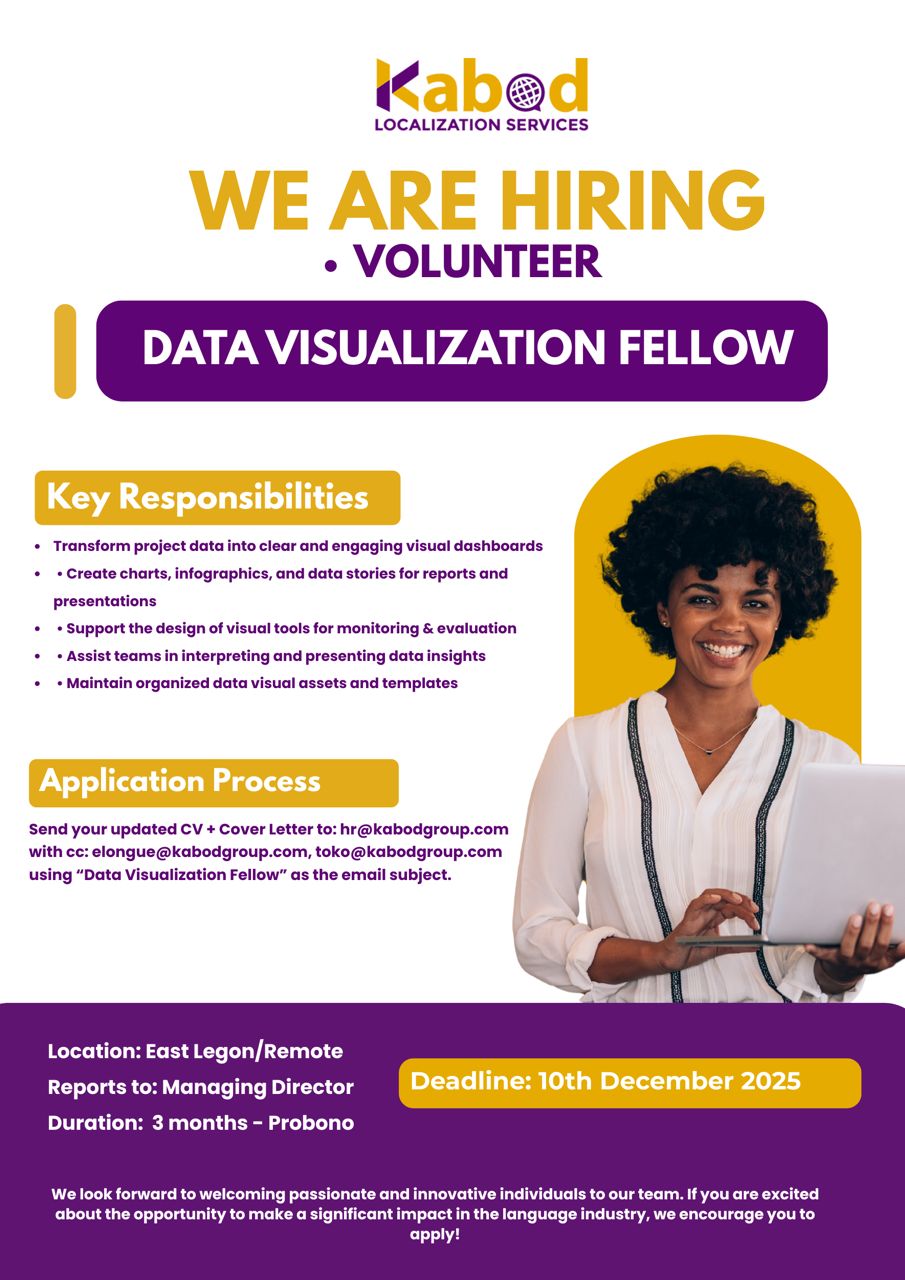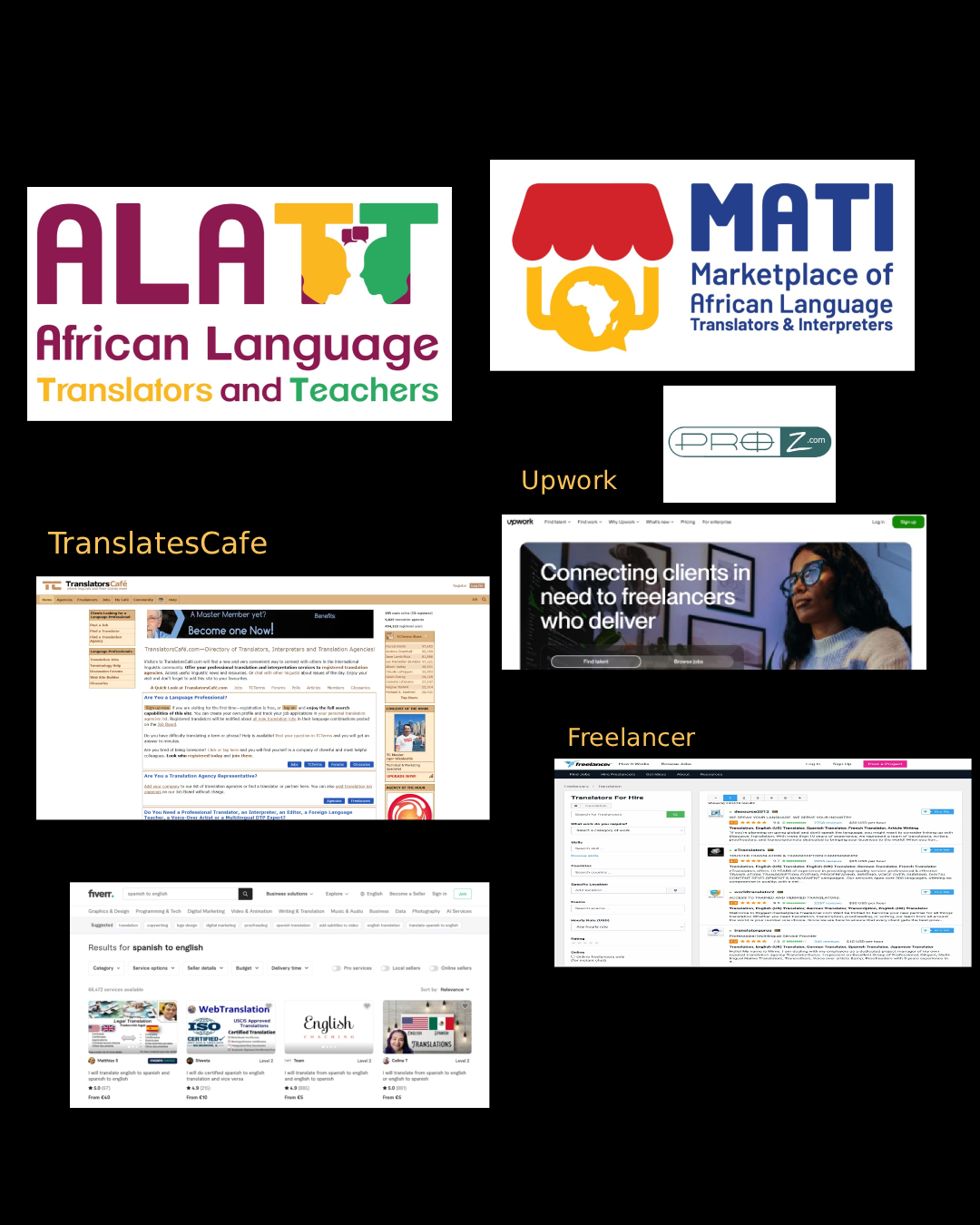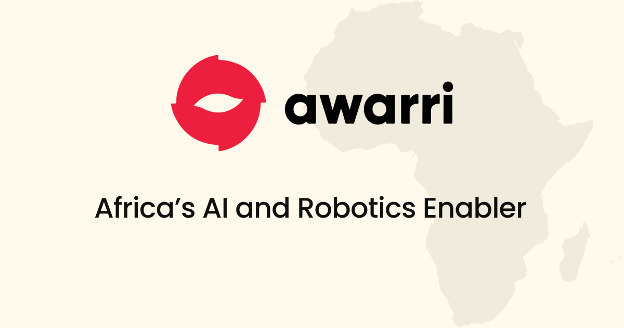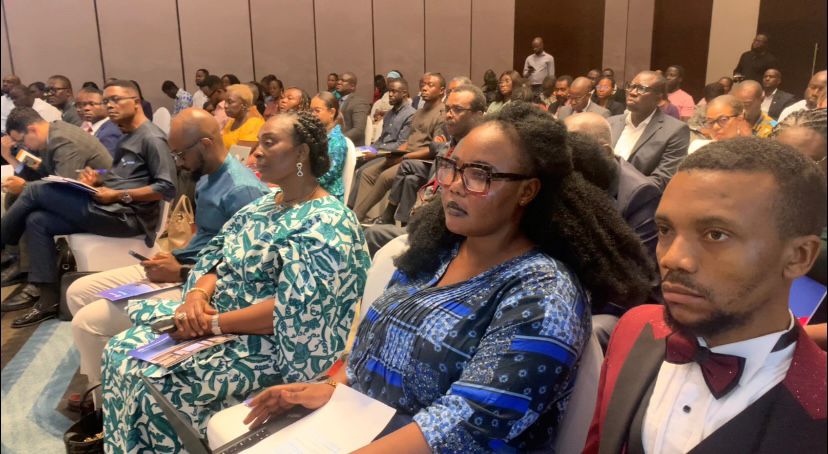
ACCRA, Ghana – September 25, 2025 – The future of Ghana’s economy was the center of discussion this week, and the African language industry had a front-row seat. At the launch of the World Bank’s major new report, “Transforming Ghana in a Generation,” Kabod Localization Services (KLS) was there to ensure that language professionals are part of the conversation.
Why Language Matters for the Economy
The World Bank report warns that Ghana needs urgent reforms. A shocking statistic highlighted that between 2012 and 2023, only 250,000 new jobs were created, mostly in low-paying sectors. At the same time, the country is losing billions of dollars to problems in the energy sector—money that could be used for schools, hospitals, and roads.
KLS sees a direct link here. A strong economy needs clear communication. For global businesses to invest in Ghana, and for Ghanaian businesses to reach the world, professional translation, interpretation, and localization are essential. This is where thousands of jobs for language experts can be created.
3 insights of this report for the Language Industry in Ghana
This report, though silent on language, has significant implications for the language industry:
- Massive Demand for Localization:Every single proposed reform—from tax compliance (MTRS) to social protection (LEAP) to agricultural extension (PFJ 2.0)—requires effective communication with the end-user. This creates a huge potential market for the localization of government communication, forms, training materials, and digital platforms into major Ghanaian languages.
- Specialized LSP Niches:The focus on governance, transparency, and private sector development will increase the need for specialized language services:
- Legal and Financial Translation:Translating new laws, investment codes, and procurement documents.
- Interpreting for Judiciary and Business:Supporting dispute resolution and foreign investment.
- Terminology Management:Creating standardized glossaries for concepts like “economic dispatch,” “risk-based auditing,” or “climate-smart agriculture” in local languages to ensure consistency and clarity.
- Digital Language Tools:The push for digitalization (Digital Policy, Ghana gov) is an opportunity to develop language technology for Ghanaian languages—speech-to-text, text-to-speech, machine translation—which are currently underserved. This is essential for true digital inclusion.
The KLS Perspective
Representing KLS at the launch were Christian Elongue, CEO, and Bakaine Toko Aliance, Operations Assistant. They stressed that true economic transformation must include a “decolonial” approach—meaning it should value and use African knowledge and languages, not just import foreign models.
“For too long, the economic value of African languages has been invisible,” said Christian Elongue. “This report talks about raising productivity and competitiveness. But we believe that you cannot be competitive if you cannot communicate effectively with your own people and your regional partners. Investing in the Ghanaian linguistic economy is not a side project; it’s a core strategy for inclusive growth.”
When the report recommends reducing bottlenecks like long business registration times, we think of young language professionals trying to start their own agencies. How can we make it easier for them? How do we ensure that initiatives like the government’s ’24-Hour Economy’ include opportunities for translators and interpreters to work around the clock? This is about building an ecosystem where our skills are recognized as vital.”
The report repeatedly calls for a “business-friendly environment.” From an LSP perspective, a truly enabling environment for the creative and knowledge economies requires robust intellectual property protection and promotion of local languages in the digital space. What policies are being considered to support the development of software, AI, and digital content in Ghanaian languages, thereby creating markets for local LSPs and preventing a new form of digital linguistic colonialism?
The report notes a skills mismatch. Could part of this mismatch be that our education system, by prioritizing English, is dislocating millions of children from their innate cognitive and cultural strengths? What is the economic cost of not leveraging mother-tongue-based multilingual education to improve foundational learning and foster innovation from a culturally grounded perspective?
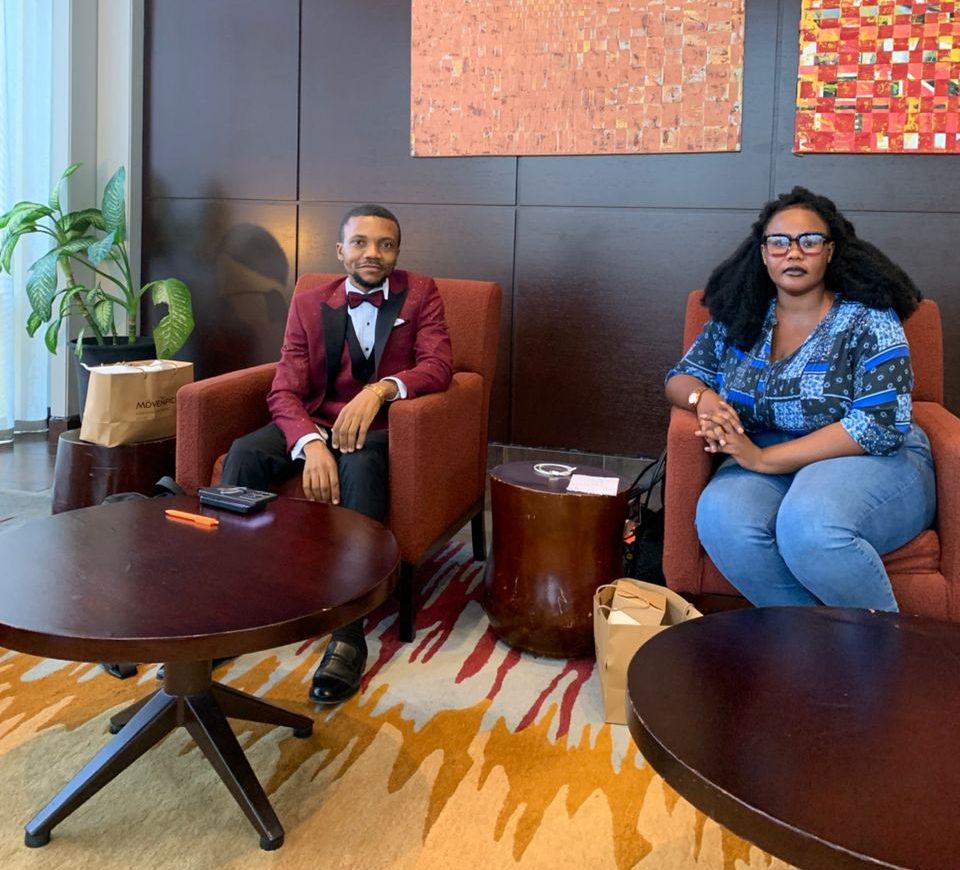
Key Recommendations
KLS believes the World Bank’s four key pillars for transformation can be supercharged by focusing on the language sector:
- Restore Stability: Part of a stable economy is a skilled workforce. The government can boost revenue by formally recognizing the language service industry, creating clear tax structures and incentives for language businesses.
- Raise Productivity: This is huge! The report calls for investment in skills. KLS advocates for including accredited translation, interpretation, and localisation training in vocational and university programs. This creates a pipeline of skilled professionals ready for global remote work and local projects.
- Sustain Resources: Ghana’s greatest resource is its people. Empowering language professionals through technology ensures that climate-smart agriculture and other vital information reaches every farmer in a language they understand.
- Strengthen Governance: Clear communication rebuilds trust. Government services, legal processes, and public information must be available in major Ghanaian languages to ensure every citizen is included.
What Does This Mean for You?
If you’re a language professional or student: This report is a signal. The demand for your skills is set to grow. Now is the time to get certified, join professional networks like KLS’s African Language Translators and Teachers (ALATT) or the Marketplace of African Translators & Interpreters (MATI), and position yourself as an expert in high-demand fields like legal, medical, or technical translation.
If you’re a teenager or young Ghanaian thinking about a career: Look at language skills as a superpower! The future of work is digital and global. Being fluent in English and Twi, Ga, Ewe, or any other language, combined with tech skills, can open doors to careers you might not have imagined—from dubbing Netflix shows to localizing video games and helping international companies enter the African market.
At KLS, we believe that Ghana’s economic transformation and the growth of its language industry are intertwined. By putting African languages at the heart of development, Ghana can not only create jobs but also build a truly inclusive and prosperous future.
The report’s greatest flaw is that it attempts to build a new, transformed Ghana using the same epistemological and linguistic foundations that have long contributed to its dependent status. It offers an economic prescription without a necessary cultural and linguistic decolonization.
What’s Next?
KLS will continue to analyze the report’s implications and advocate for the language industry. You can join the conversation by following their insights on the Afrolinguals Magazine and their podcast.

